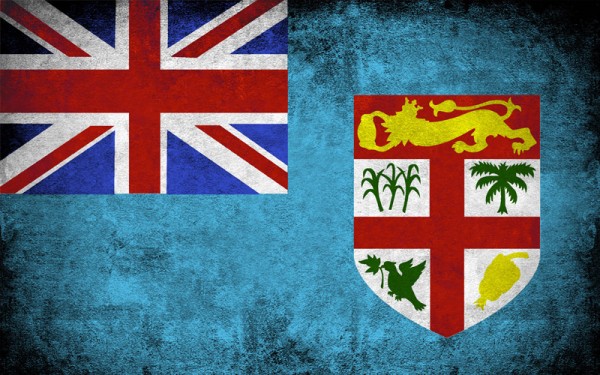New
Year’s Day. January 1. In Fiji,
some people celebrate New Year’s for a week. Everyone’s cultures contribute to
the New Year’s celebrations. And no matter what your background is, dancing is
almost always a part of the traditions. Traditional food is eaten (with the
hands), and many Fijians celebrate with their national drink called Kava (or
Yaqona).
Prophet
Muhammad’s Birthday. Varies (January/February). Many events are held on several
islands around Fiji, organized by the Fiji Muslim League. Special prayer
services are held, and people listen to stories of the Prophet’s life and
lessons.
Good
Friday/Easter. Varies
(March/April). In many villages, Easter is a time to wear your best clothes and
attend a special Easter service at church, followed by a communal
luncheon. Music and dance are almost
always a part of the celebrations as well. One of the annual traditions is
called the Crosswalk, in representation of the walk that Jesus took. A few
people are chosen to carry a large wooden cross while others follow along the
200 km (124 mi) of Queens Road. (Wow. And I get tired just going grocery
shopping with both kids.)
Ratu
Sir Lala Sukuna Day. Last Monday in May.
This is no longer a public holiday as of 2010. Ratu Sir Lala Sukuna is
considered the father of modern Fiji, the first modern statesmen. Speeches and
cultural events started about a week beforehand, leading up to the holiday
itself. In March of 2010, Commodore Voreqe Bainimarama declared that this day
and National Youth Day didn’t need a day off of work in order to celebrate it.
Party pooper.
National
Youth Day. May 4. This is no
longer a public holiday as of 2010 (see note above). This holiday is a
celebration of the nation’s youth, who make up a large portion of the
population. Each island or city
would have its own celebrations and activities aimed towards the youth: mural
painting, marches, team-building activities, concerts, dances, storytelling,
etc. The theme changes every year, but always has something to do with solving
community problems, education, and making a better community.
Queen’s
Birthday. June 15. Although Fiji
is no longer under British rule, they still celebrated the Queen’s Birthday.
However, Commodore Bainimarama abolished this as an official holiday in
2012. The military government also
took her image off of their currency, replacing it with representations of local
flora and fauna.
Fiji
Day. October 10. This day commemorates the declaration of independence from
Britain in 1970. The week leading
up to it is called Fiji Week. It’s become a celebration of Fiji’s ethnic and
religious diversity. Religious
ceremonies and cultural festivals fill the week, along with traditional food
and drink, music and dance.
Diwali.
Varies (October/November). Diwali is a Hindu festival, also known as the
“Festival of Lights,” in honor of Lakshmi, the goddess of wealth and
prosperity. Although it’s a Hindu holiday, it’s also celebrated by non-Hindus.
Fijian Hindus will often invite their neighbors (whether Hindu or not) over to
enjoy the sweet treats of Diwali.
Schools and communities will often have Diwali activities for people to
participate in and enjoy. People will also spend the days before the holiday
cleaning and decorating their homes, then wearing new clothes for Diwali
festivities.
Christmas.
December 25. Fijians tend to celebrate Christmas on a lower scale than other
countries do. It’s more about spending time with family rather than on
expensive gifts and wild decorations. Some may do these things as well, but on
a much smaller scale. Many people attend the Christmas Eve Midnight Mass and
sing Christmas carols. At night, children wait for Santa to bring a small
assortment of gifts and toys during the night. Fijians celebrate this holiday the way I love: with a lot of
food! People eat all day and drink a lot of grog and kava. And they usually continue
eating and drinking until the night. And then the next day, repeat.
 |
| Kava, the national drink. |
Boxing
Day. December 26. This is one of those holidays introduced by the British. In
Fiji, it’s generally spent as the second day of Christmas: relaxing, perhaps
working off that food and grog hangover/coma. For those who didn’t over-indulge
on Christmas, the day is usually spent having a picnic at the beach and perhaps
a swim.
Up
next: art and literature





No comments:
Post a Comment